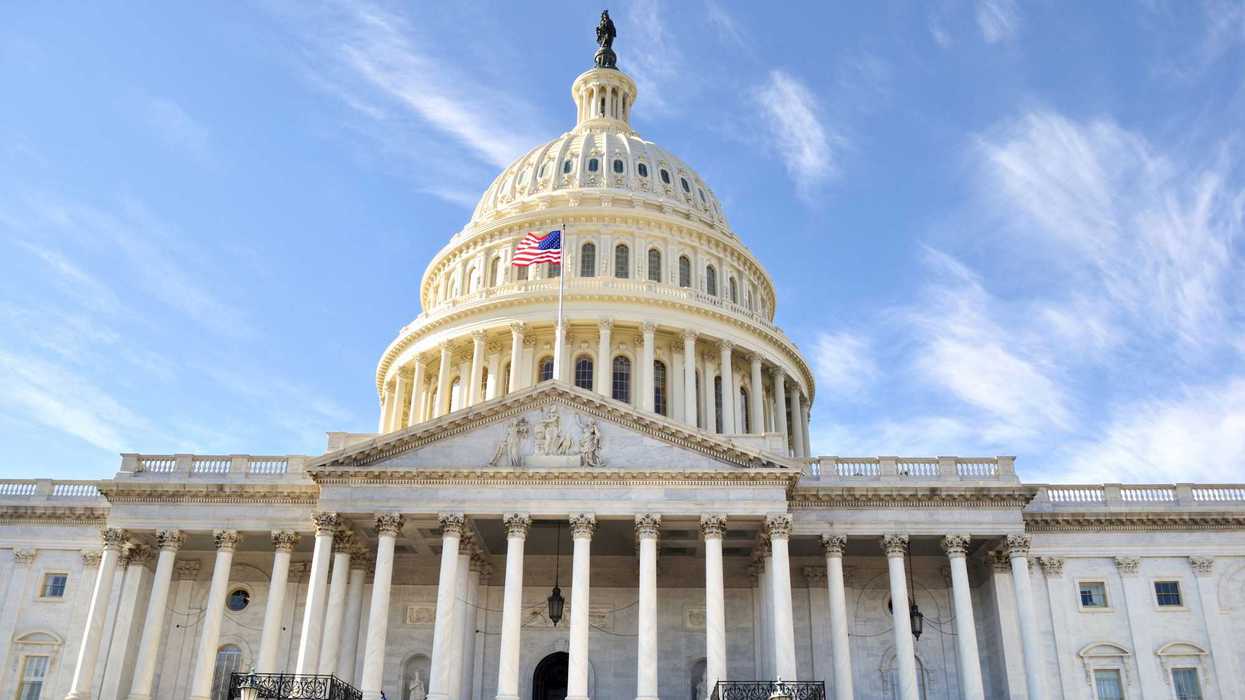Republican Senator Joni Ernst recently faced an unexpectedly hostile audience at a town hall in Iowa, where her constituents jeered as she defended the GOP’s proposed cuts to Medicaid—a program providing healthcare to 71 million low-income Americans, nearly 20% of the population.
Ernst attempted to defend the Medicaid cuts contained in what President Donald Trump has dubbed his “big, beautiful bill.” The cuts have been estimated by independent experts to slice about $880 billion over 10 years from Medicaid. The bill, she insists, will not cut anything from truly deserving Americans, it will only cut waste and fraud because there are millions receiving Medicaid benefits who are not really eligible, such as illegal immigrants, or who are otherwise undeserving.
Trump, who previously vowed never to cut Medicaid, echoed this rationale. “We’re not doing any cutting of anything meaningful,” he says. “The only thing we’re cutting is waste, fraud and abuse…We’re not changing Medicaid.” Indeed, he says, the GOP bill would “kick millions of Illegal Aliens off of Medicaid to PROTECT it for those who are the ones in real need.”
Reducing waste and fraud is undeniably important, but does this bill really do that? GOP Speaker of the House Mike Johnson, in an interview with CBS News right after the bill’s passage, attempted to explain how this legislation would crack down on waste and fraud.
“You’ve got about 4.8 million people on Medicaid right now nationwide who are able-bodied workers, young men, for example, who are not working, who are taking advantage of the system,” Johnson claimed. “If you are able to work and you refuse to do so, you are defrauding the system. You’re cheating the system.” For this reason, the GOP bill has included a much more stringent work requirement requiring adult Medicaid recipients to prove they are working or participating in community service for at least 80 hours per month.
While incentivizing work may be appropriate in some cases, nonpartisan analyses challenge the notion that widespread fraud exists. According to Census figures, 44% of Medicaid recipients worked full time in 2023 and 20% worked part time. An additional 12% were not working because they were taking care of family at home, 10% were ill or disabled, 6% were students, and 4% were retired. Of the remaining 4%, half couldn’t find work and the remaining 2% didn’t give a reason.
So with nearly two-thirds of recipients already working, and another 22% trying to cope with family challenges or unable to work due to disability or illness, is it more important that the 6% of low-income students on Medicaid work at low-paying jobs instead of getting an education or training? Should the 4% of poor and elderly people who are retired be forced to go back to work?
Trump's rhetoric targeting “illegal aliens” also misrepresents the facts. Non-citizens account for just 0.5 to 1% of total Medicaid spending, largely because undocumented immigrants are not eligible for Medicaid, except for emergency services.
The numbers simply don’t add up here.
According to independent analyses from the Congressional Budget Office and other sources, the proposed Medicaid cuts will cause almost 10 million people to lose healthcare coverage. Those most affected will be some of the most vulnerable Americans, including: nearly 4 in 10 children, over 8 in 10 children in poverty, about half of adults in poverty, 1 in 4 adults with disabilities, half of children with special healthcare needs, and five out of eight nursing home residents.
These cuts will also place a financial strain on hospitals, especially in rural areas, due to reduced Medicaid revenue and less reimbursement for care costs. Medicaid recipients are already subject to strict income caps, which vary by state, and the caps are often so low that recipients can’t earn sufficient income to live. So in effect, Republicans are ordering Medicaid recipients to work, but apparently not for too much money—or else they will become ineligible for Medicaid. Catch 22.
Medicaid cuts to pay for tax cuts for the wealthy?
While Trump’s bill seeks to cut nearly $1 billion in Medicaid benefits from the ranks of the neediest Americans, in the same “big beautiful bill,” they engineered a whopping $4 trillion tax cut for the wealthiest Americans.
According to the Center on Budget and Policy Priorities,
- Individuals making over $1 million per year will benefit from about $90,000 in tax cuts.
- Low- to middle-income Americans will receive only $90 to $1290 in tax cuts.
- The total $105 billion tax cut going to the 1.2 million households making over $1 million exceeds the total cut going to the 127 million households making under $100,000.
The bill now heads to the Senate, where Republican leadership hopes to pass it before the July 4th holiday. But opposition is building across the country, as Senator Ernst discovered during her town hall meeting. That opposition is even emerging among Senate Republicans, especially from rural states, who have expressed concerns about the impacts that Medicaid cuts will have on their own states.
Missouri’s Senator Josh Hawley has emerged as a strong critic. “Over 20 percent of Missourians, including hundreds of thousands of children, are on Medicaid,” says Hawley. “They’re not on Medicaid because they want to be. They’re on Medicaid because they cannot afford health insurance in the private market.”
GOP Senators Susan Collins from Maine, Lisa Murkowski from Alaska, Jerry Moran from Kansas, and several others have also raised strong objections. Other Republican Senators such as Rand Paul from Kentucky have objected to the enormous tax cuts that will add an estimated $2 trillion to the national debt. Conservative economist Oren Cass has questioned the much-hyped rationale for tax cuts, namely that in the past they have resulted in “record economic growth.”
“That’s not true,” says Cass, who was once the policy director for GOP presidential candidate Mitt Romney. About the Trump tax cut in 2017, Cass says, “The two-year stretch that followed its passage saw slower growth than any other two-year period of the economic expansions in the 1990s and 2000s—not the kind of record anyone should be boasting about.”
Senator Hawley has been even more blunt about paying for tax cuts with Medicaid cuts, saying it amounts to “taxing the poor to give to the rich.” This combo, he says, is “morally wrong and politically suicidal.”
At the Iowa town hall with Senator Ernst, one upset constituent called out, "People are going to die!" from Medicaid cuts. Senator Ernst smirked and smiled, "Well, we all are going to die," she said as the audience jeered. Americans appear to be starting to see through the excuses that the president and Republican leaders are peddling. No matter how much lipstick they try to put on this pig, President Trump’s attempt to pay for tax cuts with an unprecedented level of Medicaid cuts will have the effect of making the rich richer at the expense of the poor.
Steven Hill was policy director for the Center for Humane Technology, co-founder of FairVote, and political reform director at New America. You can reach him on X @StevenHill1776.





















 Mayor Ravi Bhalla. Photo courtesy of the City of Hoboken
Mayor Ravi Bhalla. Photo courtesy of the City of Hoboken Washington Street rain garden. Photo courtesy of the City of Hoboken
Washington Street rain garden. Photo courtesy of the City of Hoboken